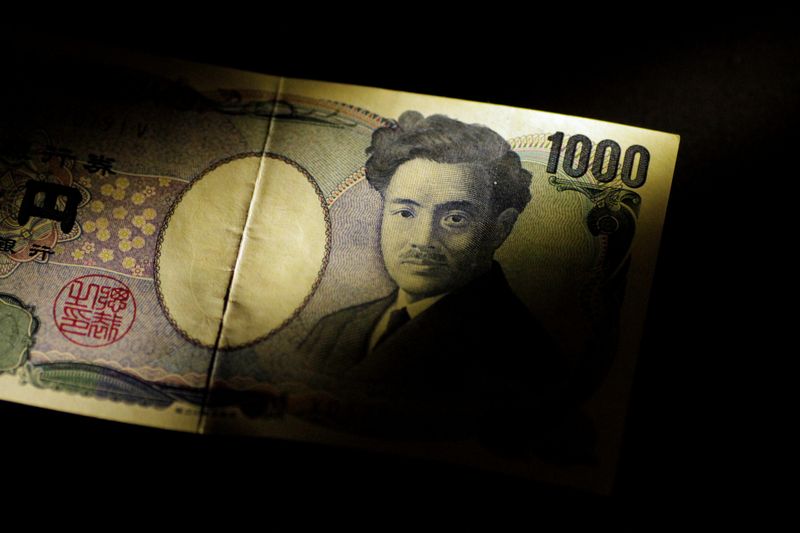TOKYO (Reuters) – Japan’s money stock, or currency in circulation and bank deposits, rose at the fastest annual pace on record in May as companies hoarded cash to guard against slumping sales from the coronavirus pandemic, central bank data showed on Tuesday.
The data underscores the disruption the health crisis is causing to corporate activity and the flow of money, leaving policymakers dealing with the stiff challenge of reviving an economy in the throes of a deep recession.
A separate private survey showed that nearly 5% of Japanese listed firms tapped banks for funds worth a combined 9.68 trillion yen to cope with the pandemic blow.
“Japanese listed firms have had abundant cash but that’s changing as the impact of the pandemic persists,” Tokyo Research Institute said in the survey released on Tuesday.
Japan’s M3 money stock – or currency in circulation and deposits at financial institutions – rose 4.1% in May from a year earlier, marking the biggest increase since comparable data became available in 2004, Bank of Japan data showed.
It topped a 3.0% gain in April.
Of the total amount, deposits at financial institutions jumped 10.1% in May, the fastest pace of increase since 2017, to a record 770 trillion yen ($7.12 trillion).
“Companies are borrowing more amid the coronavirus pandemic and parking money in bank deposits, so they have more cash at hand to meet immediate funding needs,” a BOJ official told reporters.
Nearly 30% of listed firms that tapped banks for funds were manufacturers, including big companies with global operations, and raised roughly 6.6 trillion yen in the wake of a world-wide evaporation of demand, Tokyo Research said.
Toyota Motor Corp <7203.T>, among the most cash-rich companies in the world, was the biggest borrower at 1.25 trillion yen, with rivals Nissan Motor Co <7201.T>, Mazda Ltd <MAZD.NS> and Honda Motor Co <7267.T> also having tapped banks, it said.
Japan Airlines Co <9201.T> and ANA Holdings <9202.T>, as well as some steel makers and railroad operators, were also among big borrowers.
“The lending is centred on fairly short-term loans. This suggests that companies were scrambling to meet emergency funding needs due to a rapidly worsening business environment,” Tokyo Research said.
Prime Minister Shinzo Abe announced a state of emergency in April requesting citizens to stay home and businesses to close.
Although the emergency was lifted in late May, analysts expect the economy to recover only moderately from a deepening recession in the face of the pandemic’s sweeping global impact.
(Reporting by Leika Kihara; Editing by Shri Navaratnam)






















